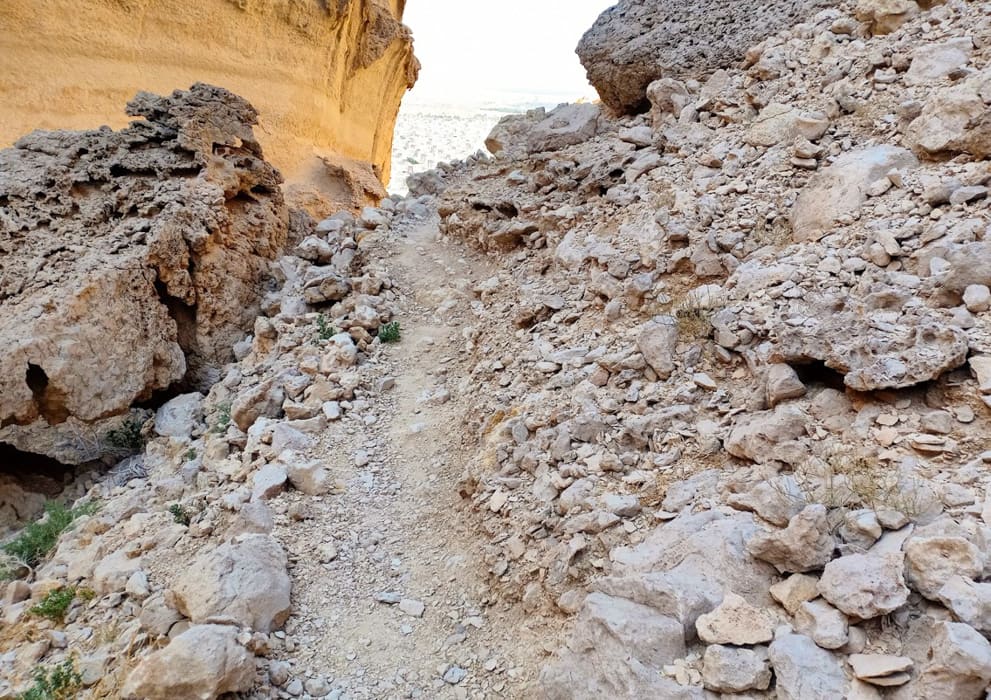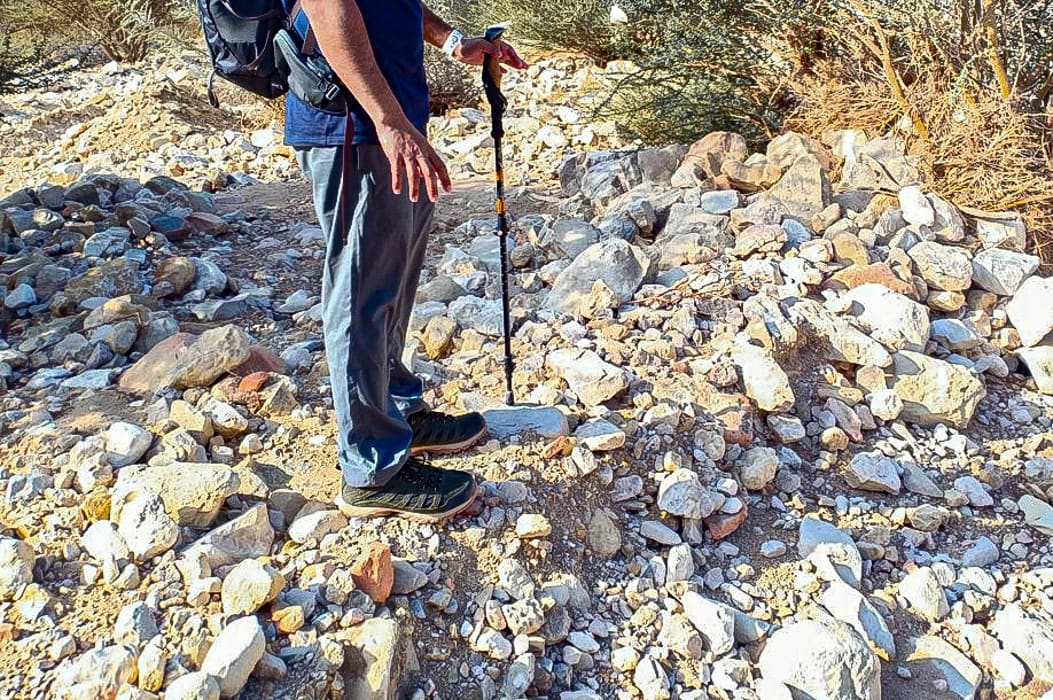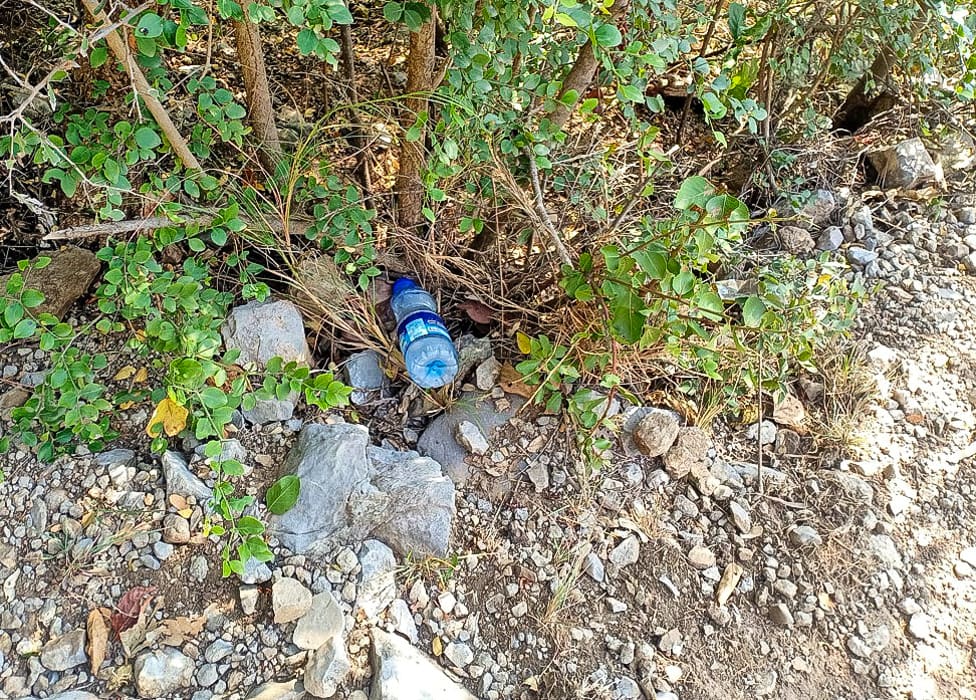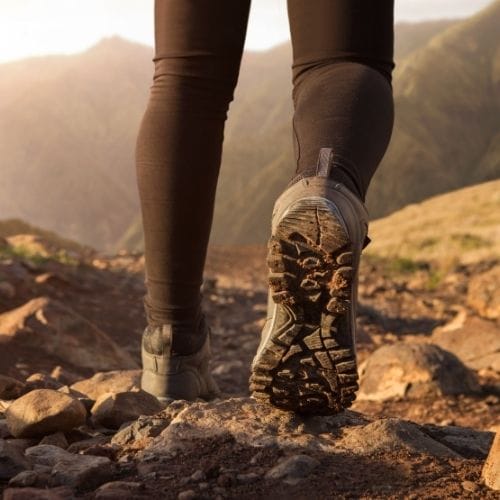About the author: Nasir is an avid hiker and outdoor content writer. He also loves reading outdoor adventure books to learn more about hiking and backpacking. He writes about his hiking adventures at hikinginsights.com and also shares useful hiking tips.
A first-time hiking adventure is a memorable experience that you can feel only once in a lifetime. I still remember my first hike a decade back and the feeling and excitement that I had.
But did I go prepared and have enough knowledge about the trail? Absolutely not.
Many first-time hikers make mistakes on the trail that affect their experience or even put them at risk. That’s why you will want to learn and prepare for your first hike to make it memorable and rewarding.
In this article, we’ll cover the 10 most common and frequent mistakes new hikers make and how they can avoid.
1. Underestimating Trail Length and Difficulty
Ever notice how many hikers get exhausted on terrain and end up committing to not hiking again? I meet the majority of new hikers facing challenges due to a lack of trail knowledge and hiking experience.
Hiking is not just walking, as most of the new hikers might think they are the same. On paper, hiking seems easy for them, but in reality, some of the sections require hiking uphill or downhill and also involve rock scrambling.
Since novice hikers are not prepared for such challenges, they get caught off guard. Remember that these sections are even challenging for experienced hikers, but they know what they might face and come prepared.

I always recommend new hikers understand the trail length and difficulty. You can read plenty of reviews online to get an idea about the trail difficulty. Keep in mind that it’s not mandatory to hike the entire trail in one go.
Assess your limit and only hike as far as you can comfortably go. Keep enough energy to come back. Start with a simple hiking trail and then gradually move toward more challenging sections.
2. Wearing the Wrong Footwear
New hikers think that regular shoes work on the trail. This can be true for well-maintained, paved trails, but not for most other kinds of trails. I am not saying that you need expensive hiking footwear, but for most simple trails, you need to wear comfortable shoes with decent traction.
Slips and falls, blisters, and foot pain are our most common problems that we face on the trail. That’s why you’ll want to wear proper hiking shoes, trail runners, or sandals that provide good traction and comfort.
There are many shoe brands that provide quality footwear specifically for outdoor activities. I suggest you visit the store, try out different shoes, check the traction, and then buy them if you feel comfortable in them.
Lightweight shoes, like trail runners, can be your best bet on most trails. As you gain more experience, you will better understand the needs of your footwear.

My friend slipped right in front of me due to the worn-out tread pattern on his trail running shoes. It’s a good idea to change your outdoor footwear from time to time.
Now, let’s move on to socks. Can you wear any socks with hiking footwear? NO!
Don’t wear cotton socks, as these socks retain moisture and cause friction, which can lead to blister formation.
Wool socks are my favourite for comfort on the trail. You can also go for synthetic socks, which are a bit cheaper than wool but far better than cotton.
3. Bad Clothing Choice
I still remember my first few hikes in jeans and cotton shirts. Before starting the hike, if you feel a bit chilly, then don’t overdress.
Because a few minutes into the hike, you start removing clothes due to overheating and then pack them in your bag, carrying the extra weight.
Sometimes those fluffy jackets don’t even fit in the daypack, and you have no option but to carry them by hand, which leads to uncomfortable hiking.
Being a regular hiker, I invest heavily in my clothing, including pants, shirts, base layers, and undergarments (yes). If you are just starting out, then stay away from cotton shirts, jeans, and poor clothing choices that are unsuitable for the weather.
Wool and synthetic clothes are better options due to their moisture-wicking and breathable properties. Understand the outdoor clothing layering technique and layer them properly.
4. Ignoring to Check the Weather Forecast
Most new hikers just ignore checking the weather forecast and rely on their gut feelings. You should not head to the trail without checking the weather.
Sudden flooding and landslides are more common due to heavy rains in the mountains.
I have seen people enjoying the landslides by standing near the affected area. Putting your safety at risk outdoors, where even rescue takes time to reach, can lead to serious injuries and even fatalities.
Stay away from landslides and try to avoid hiking during bad weather like heavy snowfall, storms, and heavy rain.
You need to bring extra water during extreme heat, and on the other hand, you need warm clothing for any unexpected snowfall or cold conditions.
5. Not Bringing Enough Water
Most rookie hikers think that there will be enough fresh water on the trail for them. Some of them just pick a small water bottle while completely ignoring the actual water needs on the trail.
Recently, I went to the dry mountains in the desert with a group, which was a 3-hour tough hike. Surprisingly, almost all of them were just carrying a 0.5-liter water bottle and then suffered due to thirst on the trail. Many returned just after one hour of hiking due to exhaustion and lack of water.
You need to drink plenty of water, even in chilly weather, to stay hydrated. In warm weather, you even need more water as you sweat more, and it can cause serious dehydration.
On longer hikes, I always research the trail to see if I can find enough water, and then I bring my water filter or water purification tablets if I am going to stay longer on the trail.
6. Ignoring Leave No Trace Principles
Being a nature lover, it’s heart-breaking for me to see hikers, especially the inexperienced, completely ignoring the Leave No Trace principle.
Different companies and institutes that offer group hiking tours also leave so much trash behind. Whenever possible, I try my best to collect water bottles, wrappers, and trash from the trail and dispose of them properly.

It’s our collective responsibility to protect nature for future generations. Learn and practice Leave No Trace principles as much as possible. Don’t pollute the water on the trail, and try to carry biodegradable soap instead of regular soap to minimize the impact. I usually take Dr. Bronner’s biodegradable soap, which is the top biodegradable soap option.
Always dispose of your trash in designated places, and pack your wrappers and empty bottles and dispose of them in designated places.
7. Lack of Trail Etiquettes Knowledge
Have you ever heard the shouting, noise, and loud music on the trail? Well, you are not alone.
Many novice hikers don’t respect their fellow hikers due to a lack of knowledge of trail etiquette. The trail is not your private property.
Respect other hikers and always show empathy. Respect fellow hikers. Don’t be noisy on the trail. Give way to other hikers whenever needed.
Also, don’t engage with wild animals on the trail. I have seen some people annoying monkeys, and then they start bothering everyone. Remember, filming or taking photos of other people without their consent can land you in jail.
8. Pushing Beyond Limits
I especially noticed this behaviour in student group hikes. Under the influence of others and, to prove a point, they try to hike too far, too fast, and scramble on risky rocks.
The worst part is that they completely ignore signs of fatigue and dehydration.
Remember that hiking is not a race; don’t push beyond your limits. Your parents and loved ones wait for your return, so don’t create stress for them.
It’s always a good idea to take regular breaks to regain your breath. If you don’t know where the trail is leading, then turn back. Learn about the trail again and then hike it again.
9. Over-packing or Under-packing
Even experienced hikers struggle to pack the right gear for a particular hike. But new hikers ignore what to pack and what not to pack completely and then struggle on the trail.
I met some hikers who were just carrying one water bottle in hand for a 5-hour-long hike. They asked me if there was any convenience store on the trail, as they were very hungry.
It’s very important that you pack according to the weather conditions and hiking duration.
Overpacking can badly affect hiking performance, but that does not mean you should leave the important gear, like water and snacks, behind.
10. Hiking Alone
Honestly speaking, I love hiking alone. But it’s a bad idea if you are not prepared and lack hiking trail knowledge, which novice hikers often do.
They make the mistake of not getting knowledge about the trail. They don’t inform anyone that they are going to hike alone. They also lack the knowledge of using GPS and other navigation tools.
But that does not mean you always need a buddy for a hike. You just need to get the proper knowledge about the trail, take the proper gear (including navigation), follow the main trail, and avoid shortcuts.
You should immediately head back if you are going in the wrong direction and are unsure about the trail.
Summary
That’s all. To sum up, it’s important that you avoid common mistakes that we mentioned for an enjoyable hiking experience. You don’t need any expensive hiking gear at the beginning or for occasional short hikes. But, it is a must that you bring proper footwear and wear the right clothing for your comfort and safety on the trail. Understand your limits, bring enough water, and know about the trail before starting your hike.
Have you already hiked your first hike? How was your experience? Let us know in the comments.



Leave a Reply